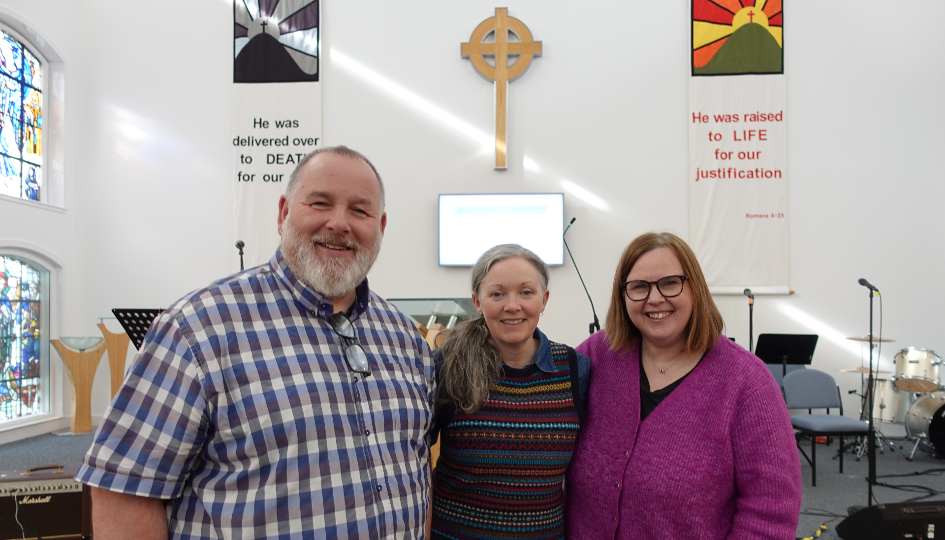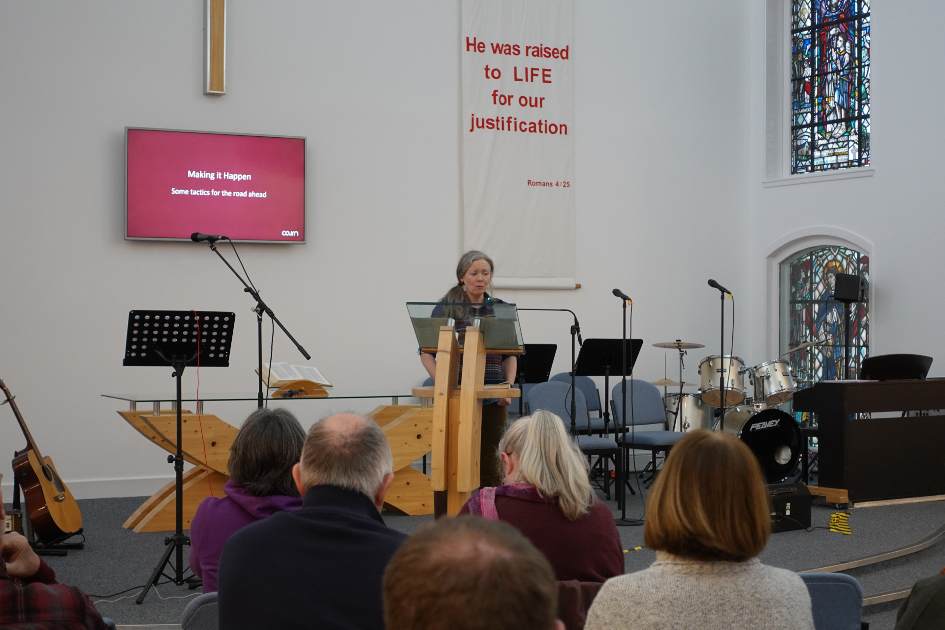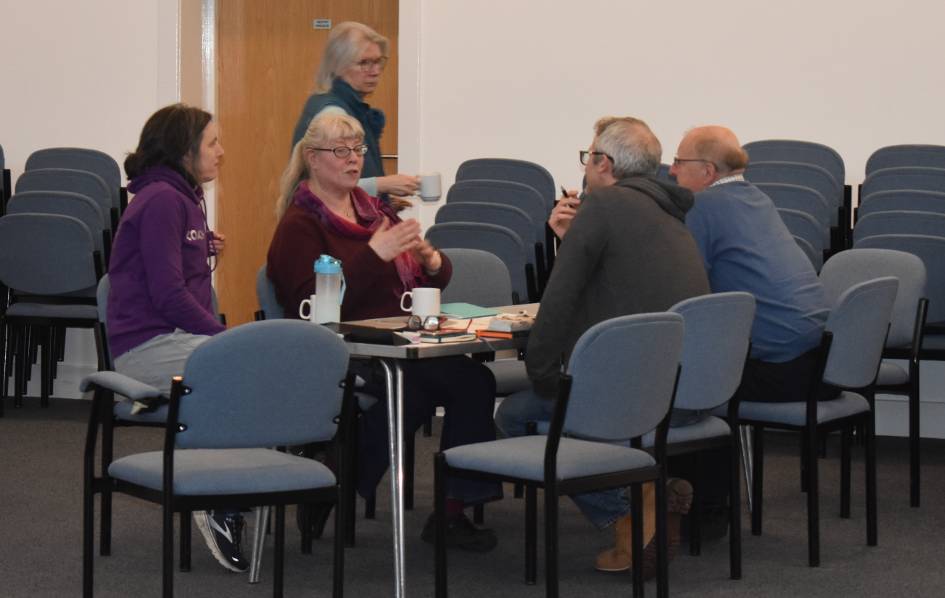Cairn course is building disciples for a modern world
At the very beginning of the Church's story, Jesus commanded his disciples to go into the world and spread the Good News.
Two millennia on, that challenge is still the same, but today's Christians can sometimes require a bit of help in learning how to be a disciple in the modern world.
This is where the Cairn Movement can help.

Working across Scotland and Ireland, Cairn helps create new worshiping communities through its Forge church planting programmes, but also works with existing churches to enthuse and encourage discipleship among its members.
To achieve this, Cairn offers a two-year mentored course, with online support and in-person learning weekends, guiding church leaders in new ways of thinking about mission.
One of these learning weekends was recently hosted by Inshes Church in Inverness with Clèir Eilean Ì, the presbytery for the Highlands and Islands, pioneering a process that is set to be rolled out across the Church of Scotland.
Cairn's team leader Rev Alan McWilliam, an ordained Church of Scotland minister, was among the leaders of the workshop, which is geared towards helping churches become more outward focussed to reach people without any church connections.
"There are lots of folks who are sitting in church who know that we cannot continue to do what we have been doing and need to change, but they just don't know how to accomplish that," Mr McWilliam said.
"At the end of the teaching weekend, we ask each church team to make a six-month plan showing what building a discipleship context would look like. We will have given them a lot of input in terms of what other areas have looked at, and using those examples, people are able to build their own plan which they will take back to their kirk session."
The aim is to reverse the traditional church model where the vast majority of the work is done by a small number of church people, and encourage more members to become active and step into leadership roles while creating a culture of discipleship.
Investing in people
"If you invest in the people and mobilise the whole people of God, that produces a leadership pipeline," Mr McWilliam explained.
"They become more confident in their faith and more likely to step forward. That gives you the capacity to allow you to work collaboratively not just in your own parish, but in other parishes as well."

Participants are encouraged to use their own interests and experience as a tool for mission work, so those with an interest in the outdoors might organise gardening activities or walks, while others lead music or craft groups.
"We are not telling you what to do," Mr McWilliam said.
"We find out what you are passionate about and encourage you to do that because we believe by combining that with the skills that you have learned here, you will come up with better missional ideas."
Since 2015, Cairn has worked with 100 churches in Scotland across a number of denominations, but Cairn plans to work with all of the Church's new presbyteries over the next few years.
However, Mr McWilliam warns not to expect an instant impact.
"For most churches, that culture change is a five to seven-year process, so we are in the first two years of actually quite a long process," he said.
"The big thing from our point of view is that we just need to see who is interested in this type of change and ready to build for the future. These are the churches we are looking for."

Making a difference
Rev Scott McRoberts, minister of St Columba Parish Church in Inverness, has taken on the role of learning community development leader with Cairn after experiencing the difference it has made to his own ministry.
"It reset my thinking about what we are supposed to be doing as churches," he said.
"Cairn inspired me to more than just turning up on a Sunday to preach. It helped me see what going to make disciples could look like in day to day life, and it has helped me to train and disciple people better in turn."
He believes Cairn can set an important pattern for the Church of Scotland as a whole.
"Cairn is not a substitute for traditional ministry. It is trying to help the existing Church renew and get back to what the early Church was doing from day one," he said.
"Cairn has made a difference to me, it has made a difference to our church and if you ask people here, I think they would tell you it has made a difference to them too. It has opened up eyes to what could be. It has given our churches hope and vision and some practical tools to make that happen."
Rev McRoberts' role with Cairn involves establishing learning communities in each presbytery, and working with people in presbyteries who can gather the churches who want to invest in it.
The costs of learning communities can be discussed with presbytery mission officers or other representatives to find the best funding model in each presbytery.
Anyone who is interested in finding out more about how learning communities can equip and enable churches and presbyteries for mission and discipleship can contact Rev McRoberts at scottm@cairnmovement.com
To find out more about Cairn, visit its website.